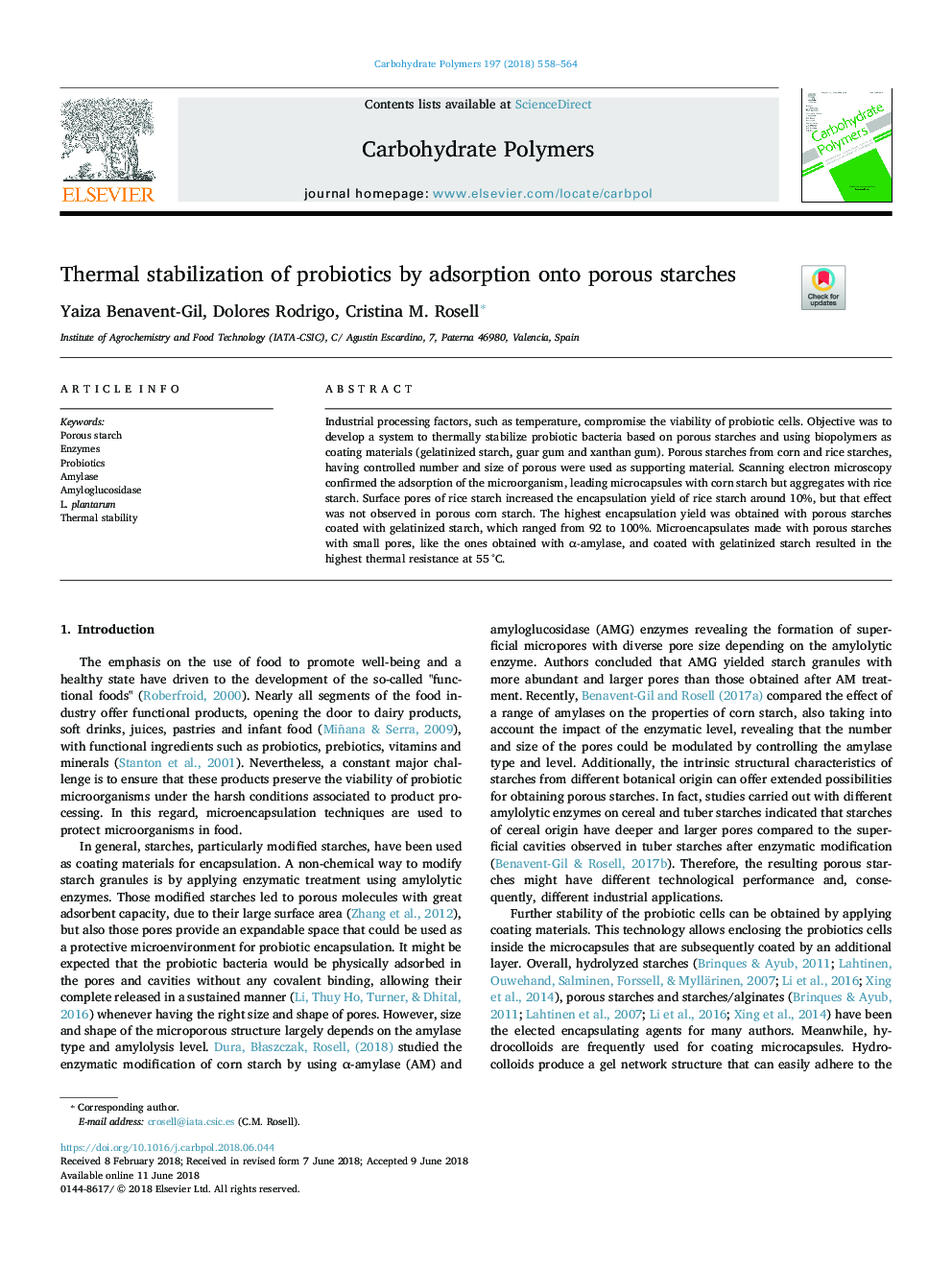| Article ID | Journal | Published Year | Pages | File Type |
|---|---|---|---|---|
| 7781964 | Carbohydrate Polymers | 2018 | 7 Pages |
Abstract
Industrial processing factors, such as temperature, compromise the viability of probiotic cells. Objective was to develop a system to thermally stabilize probiotic bacteria based on porous starches and using biopolymers as coating materials (gelatinized starch, guar gum and xanthan gum). Porous starches from corn and rice starches, having controlled number and size of porous were used as supporting material. Scanning electron microscopy confirmed the adsorption of the microorganism, leading microcapsules with corn starch but aggregates with rice starch. Surface pores of rice starch increased the encapsulation yield of rice starch around 10%, but that effect was not observed in porous corn starch. The highest encapsulation yield was obtained with porous starches coated with gelatinized starch, which ranged from 92 to 100%. Microencapsulates made with porous starches with small pores, like the ones obtained with α-amylase, and coated with gelatinized starch resulted in the highest thermal resistance at 55â¯Â°C.
Related Topics
Physical Sciences and Engineering
Chemistry
Organic Chemistry
Authors
Yaiza Benavent-Gil, Dolores Rodrigo, Cristina M. Rosell,
